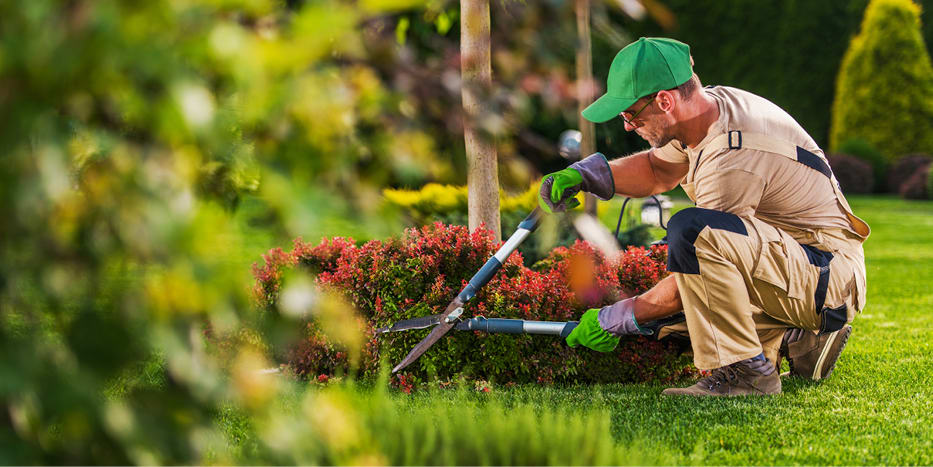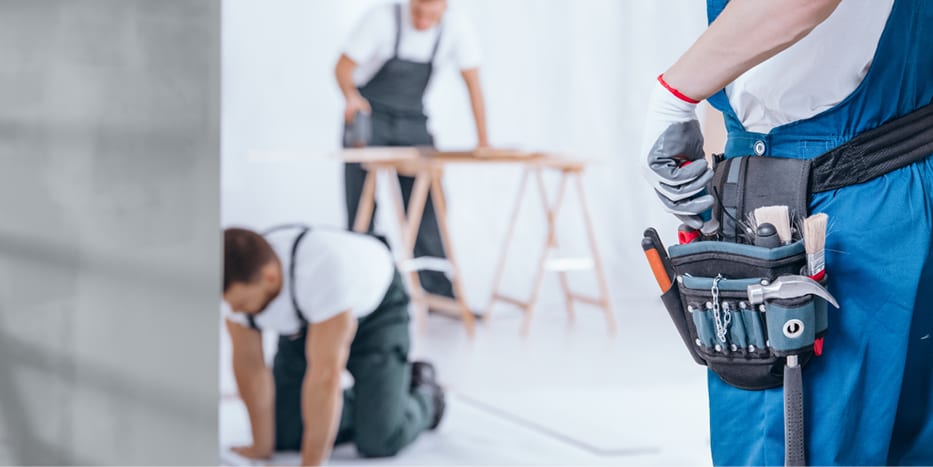12 Red Flags: How to Spot a Bad Contractor for Your Community

Community council members are responsible for their neighbourhood's operations and upkeep. Choosing the right community contractor ensures that funds are used wisely and crucial projects are completed by experienced professionals. On the other hand, bad contractors may drain funds and hurt the community’s progress.
It can be challenging to weed out unqualified vendors when you don’t know what to look for. Read on to discover 12 warning signs to help you steer clear of bad contractors.
Types of Community Contractors
Associations have common elements that need regular inspections, maintenance, and repairs. Depending on your community’s amenities and shared spaces, some specialized contractors can help with different projects, including:
- Landscaping
- Pool services
- Fire prevention
- Restoration and construction
- Roofing and flooring
- Heating, ventilation, and air conditioning (HVAC)
- Electrical wiring and repairs
- Exterior and interior painting
- General maintenance and repairs
Tips for Finding a Good Community Contractor
Selecting the best contractor is a big decision that can affect the entire community. Carefully vet vendors before signing on the dotted line. Here are insider tips to help you find a good contractor for community projects:
- Review your governing documents for contractor requirements
- Determine a reasonable budget and stick to it
- Interview and get quotes from multiple contractors
- Ask for references from potential HOA contractors
- Look for online testimonials and reviews of the contractor
- Check bad contractor lists or bad contractor websites to avoid fraudulent businesses
Related: “Everything You Need to Know About Securing a Loan for Your Association Project”
Contractor Red Flags: 12 Signs of a Bad Contractor
Avoiding bad contractors will help keep your budget on track and the association running smoothly. Contractor warning signs to look out for include:
1. The contractor is unprofessional.
The way contractors present themselves holds a lot of weight. You want to work with someone who will be responsive, transparent, and on time. Signs of an unprofessional contractor are:
- Difficult to connect with
- Poor communication skills
- Condescending or disrespectful behavior
- Subpar materials or workmanship
- Record of missing deadlines
2. They don’t have proper credentials.
Council boards must carefully check that potential contractors have the correct credentials, including proper permits and licensing that meet industry standards. Without them, the association risks financial and legal issues.
3. There are no references.
Contractors who cannot produce references are major red flags. This could mean previous clients, suppliers, or vendors were unhappy with how their projects were handled and couldn’t vouch for them.
4. No proof of insurance.
Contractors must carry adequate insurance coverage to protect the association and themselves if they’re injured during the project. While insurance requirements vary by province, contractors typically need general liability and workers’ compensation insurance.
5. They lack professional experience.
Not all inexperienced contractors are bad. However, contractors who’ve been in business for a long time are more likely to know how to address issues, communicate with clients, and give accurate estimates of project costs and deadlines.

6. They come unprepared.
When you schedule a contractor consultation, expect them to be ready to assess the project’s scope by:
- Walking the grounds or property
- Taking measurements
- Discussing your goals
- Sharing their expertise
- Addressing your questions and concerns
The contractor may even provide a rough quote. If the contractor doesn’t come to your meeting prepared or can’t answer your questions, it’s probably best to move on.
7. They don’t have association experience.
Community projects are often more complex than others because so many stakeholders are involved. The outcome can directly impact property values and the quality of living for all residents.
If a contractor doesn’t have specific experience working with community associations, they may not have the expertise to meet community standards or withstand the pressure of a project that size.
8. There’s no service contract.
It’s necessary to have a written contract when working with a community contractor. This serves as a legal agreement that confirms vital project details, such as:
- Scope of work
- Payment terms
- Deadlines
- Licensing and insurance requirements
- Termination conditions
Without a service contract, the community has no proof of what the contractor agreed to deliver and under what terms, leaving the community open to exploitation.
9. The price seems too good to be true.
When the estimated cost of the project is well below what you expected, it could be a warning sign of:
- Shoddy workmanship
- Poor quality materials
- Uninsured or underinsured contractors
- An unrealistic quote for the project’s scope
- An inexperienced contractor
10. They can’t agree to reasonable payment terms.
Conversely, contractors with unreasonable quotes or payment terms may be taking advantage of the situation. When it’s a pressing repair or time-sensitive project, some contractors may bump the price or require upfront payment in hopes you’ll accept out of necessity.
If the contractor isn’t willing to negotiate, it’s worth getting quotes from additional contractors who are more flexible and can help your community stay within budget.
11. There’s no warranty.
A community contractor warranty ensures the parts, materials, and workmanship are of the highest quality. If defects or issues arise during the warranty period, the contractor must rectify them at no additional cost or up to the warranty’s value. Without it, the association will be financially responsible for repairs.
12. It doesn’t feel right.
When you’ve done your due diligence and go through the proper vetting process, you should feel good about your decision to hire a contractor. If something doesn’t feel right or you have reservations about moving forward, your gut feeling could be a red flag.
The Community Partners & Professional Service Providers Every Council Needs
Keeping these warning signs in mind will help you avoid bad contractors for your community. However, you also need to carefully vet other community professional service providers to help your neighbourhood thrive. Check out our ebook, “The Community Partners & Professional Service Providers Every Board Needs,” for insight into key partnerships your community may need.